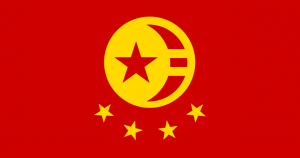Difference between revisions of "Language/Yue-chinese/Grammar/Conditional-Mood"
m (Quick edit) |
m (Quick edit) |
||
| Line 33: | Line 33: | ||
<hr>If you have any questions, please ask them in the comments section below.<br>Feel free to edit this wiki page if you think it can be improved. 😎 | <hr>If you have any questions, please ask them in the comments section below.<br>Feel free to edit this wiki page if you think it can be improved. 😎 | ||
==Related Lessons== | ==Related Lessons== | ||
* [[Language/Yue-chinese/Grammar/Pronouns|Pronouns]] | * [[Language/Yue-chinese/Grammar/Pronouns|Pronouns]] | ||
* [[Language/Yue-chinese/Grammar/Questions|Questions]] | * [[Language/Yue-chinese/Grammar/Questions|Questions]] | ||
* [[Language/Yue-chinese/Grammar/Nouns|Nouns]] | |||
* [[Language/Yue-chinese/Grammar/Negation|Negation]] | |||
* [[Language/Yue-chinese/Grammar/Give-your-Opinion|Give your Opinion]] | |||
* [[Language/Yue-chinese/Grammar/How-to-Use-Be|How to Use Be]] | |||
* [[Language/Yue-chinese/Grammar/Plurals|Plurals]] | * [[Language/Yue-chinese/Grammar/Plurals|Plurals]] | ||
* [[Language/Yue-chinese/Grammar/ | * [[Language/Yue-chinese/Grammar/How-to-Use-Have|How to Use Have]] | ||
* [[Language/Yue-chinese/Grammar/Future-Tense|Future Tense]] | |||
{{Yue-chinese-Page-Bottom}} | {{Yue-chinese-Page-Bottom}} | ||
Revision as of 12:34, 6 March 2023
Hi Yue Chinese learners! 😊
In today's lesson, we will be discussing the conditional mood in Yue Chinese. This is an important part of the language and understanding it will help you to communicate more effectively.
Overview
The conditional mood is used to express a hypothetical situation or condition. It is used to express what would happen if something were true. For example, if I said "If I had enough money, I would buy a car", this would be an example of the conditional mood.
Structure
The structure of the conditional mood in Yue Chinese is quite simple. It consists of two parts: the condition and the result. The condition is usually expressed using the word "jiu" (if) and the result is expressed using the word "jiu" (then).
For example:
- If I have enough money, then I will buy a car.
- 如果我有足够的钱,就会买车。
Usage
The conditional mood can be used in a variety of situations. It can be used to express wishes, desires, and even warnings.
For example:
- If you don't study, then you won't pass the exam.
- 如果你不学习,就不会通过考试。
It can also be used to express hypothetical situations.
For example:
- If I had enough money, then I would buy a car.
- 如果我有足够的钱,就会买车。
Conclusion
The conditional mood is an important part of Yue Chinese grammar. Understanding how to use it correctly will help you to communicate more effectively.
If you have any questions, please ask them in the comments section below.
Feel free to edit this wiki page if you think it can be improved. 😎
Related Lessons
- Pronouns
- Questions
- Nouns
- Negation
- Give your Opinion
- How to Use Be
- Plurals
- How to Use Have
- Future Tense
